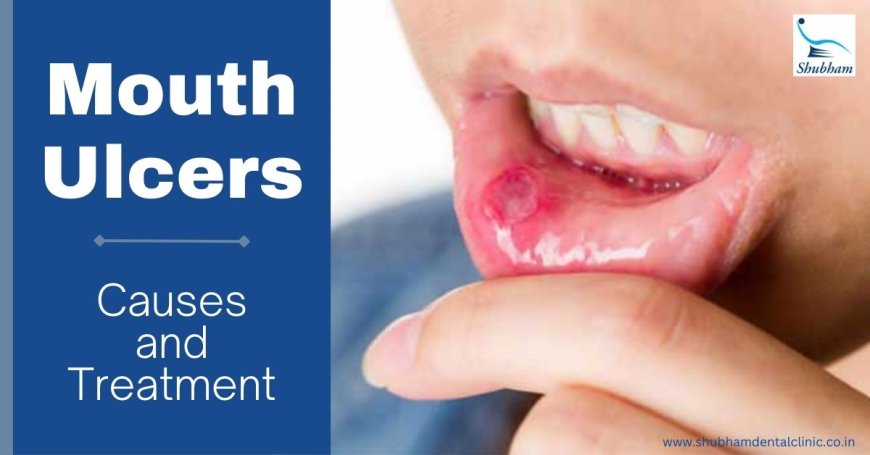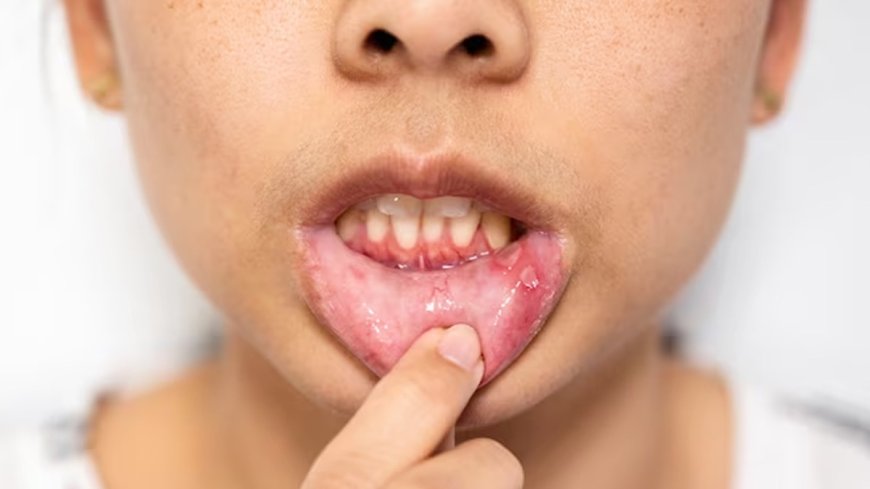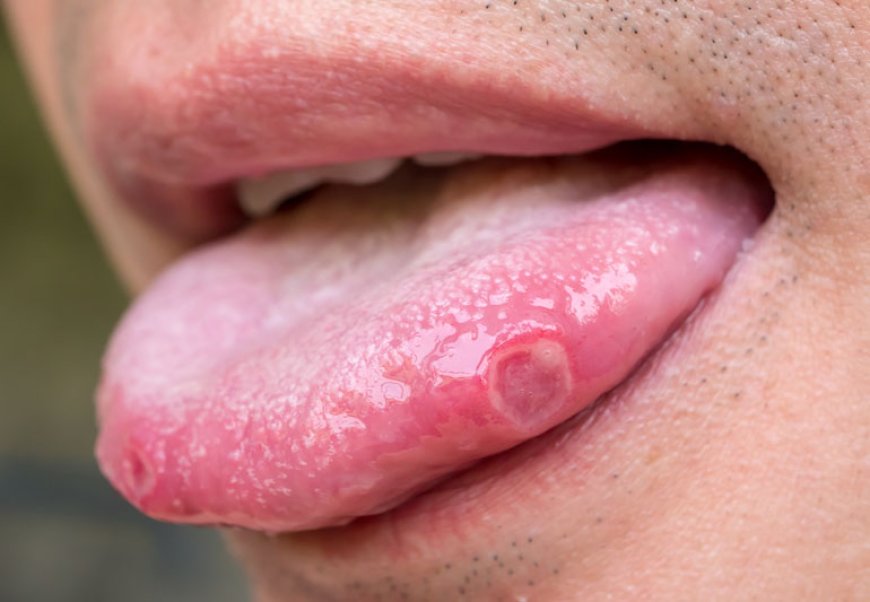“Mouth Ulcers: When To Worry And How To Treat Them”
Learn when to seek help for mouth ulcers and effective treatment options. Find out when it's time to see a dentist or doctor.
Mouth ulcers, also known as canker sores or aphthous ulcers, are a common oral health issue that many people experience at some point in their lives. These small, painful sores can develop on the inside of the cheeks, lips, tongue, or throat, making activities like eating and talking uncomfortable. While they are usually harmless and tend to heal on their own, understanding their causes, symptoms, and treatments can help manage their discomfort.
What are Mouth Ulcers?
Mouth ulcers are shallow, round or oval sores that form inside the mouth. They can vary in size, ranging from a few millimeters to over a centimeter in diameter. Typically, they appear as white or yellowish spots with a red border, and they can be quite painful, especially when irritated by food or drink.
Types of Mouth Ulcers
There are three main types of mouth ulcers:
Minor Ulcers: These are the most common type, accounting for about 80% of cases. Minor ulcers are small, round or oval-shaped, and typically heal within one to two weeks without scarring.
Major Ulcers: These are less common but larger and deeper than minor ulcers. They can be very painful and may take several weeks to heal. Scarring is possible with major ulcers.
Herpetiform Ulcers: Despite their name, herpetiform ulcers are not caused by the herpes virus. They are small ulcers that cluster together in groups of 10 to 100. Each ulcer is about 1-2 millimeters in size and can merge to form a larger sore. These ulcers are less common but can be quite painful and can take up to two weeks to heal.
Causes of Mouth Ulcers
The exact cause of mouth ulcers is not always clear, but several factors can contribute to their development:
Trauma: Accidentally biting the inside of your cheek or lip, or using a toothbrush with hard bristles, can cause irritation and lead to ulcers.
Certain Foods: Acidic or spicy foods, as well as foods like chocolate and coffee, can trigger mouth ulcers in some individuals.
Stress: Emotional stress or anxiety can weaken the immune system, making it easier for ulcers to form.
Hormonal Changes: Some women may experience mouth ulcers during hormonal changes, such as menstruation.
Nutritional Deficiencies: A lack of essential nutrients like vitamin B12, zinc, folate, and iron can contribute to ulcer formation.
Medical Conditions: Conditions like celiac disease, Crohn's disease, and HIV/AIDS can increase the likelihood of developing mouth ulcers.
Genetics: There may be a genetic predisposition to developing mouth ulcers, as they tend to run in families.
Symptoms of Mouth Ulcers
The symptoms of mouth ulcers are usually quite distinctive, making them relatively easy to identify:
Pain or Discomfort: Ulcers can be painful, especially when eating, drinking, or talking.
Visible Sores: The ulcers themselves are visible as white or yellowish spots with a red border.
Swollen Tissue: The area around the ulcers may appear swollen or inflamed.
Difficulty Eating: Due to the pain, eating certain foods, particularly acidic or spicy ones, can be uncomfortable.
Sensitivity to Temperature: Hot or cold foods and drinks may cause increased discomfort.
Diagnosis and Treatment
In most cases, mouth ulcers do not require medical treatment and will heal on their own within one to two weeks. However, if the ulcers are particularly large, painful, or persistent, it is advisable to seek medical advice. A healthcare professional can diagnose the ulcers by examining the mouth and may recommend treatments to alleviate symptoms and promote healing.
Home Remedies
Several home remedies can help ease the discomfort of mouth ulcers and promote healing:
Saltwater Rinse: Gargling with warm salt water can help reduce inflammation and promote healing.
Avoid Irritants: Avoiding spicy, acidic, or rough foods can prevent further irritation to the ulcers.
Topical Treatments: Over-the-counter topical gels or creams containing benzocaine or hydrogen peroxide can provide pain relief.
Avoid Smoking: Smoking can irritate mouth ulcers, so quitting or reducing smoking can help with healing.
Proper Oral Hygiene: Brushing gently with a soft-bristled toothbrush and using a mild toothpaste can prevent further irritation.
Medical Treatments
In severe cases or when home remedies are not effective, a healthcare provider may recommend medical treatments such as:
Topical Corticosteroids: Prescription-strength gels or ointments can help reduce inflammation and promote healing.
Oral Medications: If the ulcers are severe or recurrent, oral medications like corticosteroids, antimicrobials, or analgesics may be prescribed.
Cauterization: In rare cases, cauterization using chemicals or lasers may be used to seal the ulcers and promote healing.
Dietary Supplements: If nutritional deficiencies are suspected, supplements such as vitamin B12, iron, or folic acid may be recommended.
Prevention
While not all mouth ulcers can be prevented, there are steps that can be taken to reduce their occurrence:
Maintain Good Oral Hygiene: Brushing and flossing regularly can help prevent irritation and infection.
Avoid Trigger Foods: If certain foods trigger ulcers, try to avoid or limit them in your diet.
Manage Stress: Stress management techniques such as exercise, meditation, or yoga can help reduce the likelihood of ulcers.
Check for Food Sensitivities: If you suspect certain foods are causing ulcers, consider keeping a food diary to identify triggers.
Get Regular Dental Check-ups: Regular dental visits can help identify any oral health issues early, including potential causes of mouth ulcers.
Conclusion
What's Your Reaction?












































